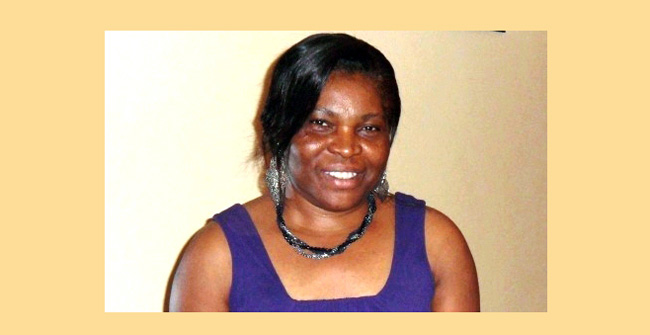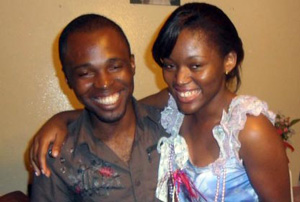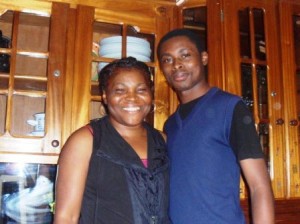Column: The Women’s Corner
At a time when we are reaching an important milestone and celebrating one year of existence of DUNIA Magazine, I find it appropriate to go back to the beginning not only to reflect on the road we have been on together so far, but also to ensure that we are staying true to the vision and the definition of what makes DUNIA. DUNIA Magazine is about you and I, we believe in ordinary people sharing ordinary stories of their everyday lives, to connect with people from all around the globe, learn from each other, transcend cultures, cross over bridges, break myths and expand our horizons.
As many of us will agree, if there is one thing women are good at, it’s connecting; we love sharing with one another, hence the existence of this column – The Women’s Corner.
I don’t know about you, but so far I have learned a lot from the ladies we have featured, I have had countless “A-ha moments” and myths have surely been shattered. I have found myself cheering for the ladies we have met, sometimes wanting to cry with them as they narrated their stories; I have learned a few tricks and found encouragement in the resilience they have shown.
The lady I am introducing you to today is Mrs Annette Mouangue, from Cameroon, Africa. In a society where it wasn’t easy for women to achieve much of their educational goals once they were raising a family, Annette defied several odds to accomplish her dreams. We bring you her story in her own words

It all starts in 1980. I am married at 22, and I have just left my family home. I am without a good education – I am in première and have failed the probatoire. Due to frequent pregnancies, I am obliged to interrupt my studies. Five years later, in 1985, I am employed at the Ministry of Women’s Affairs as a secretary/typist, following a short typing training course I did. I am then a category six worker ( one of the lowest pay grades of government workers). These were not easy years as I was also raising my young children while meeting the demands of my profession; often characterised by late working hours and weekend shifts.
However, it so happened that my level of performance was above my work category and this created in me a thirst to advance myself and acquire more training, especially as I saw in myself the potential to do better than my superiors (bosses) at the time.
In 1991 while I was pregnant with my last child (who is now 19), I grabbed my ‘old books’ and prepared for the Probatoire. Surprisingly, I passed and moved to category seven. I was amazed, my brain was still ‘intellectually sound’! I decided to give the Baccalauréat a try, which I unfortunately failed. I attempted at least six more times — all in vain.
In 2001, I traveled with my husband (a trade unionist) on one of his trips to France. “Why not take advantage of these trips he took so many times a year to further my studies?” I asked myself.
After two years of research, I found the C.N.A.M (Conservatoire National des Arts et Métiers) in Nante, France. I submitted an application and was admitted to undergraduate school to study Workplace Psychology.
Three years later, I came to a cross-roads and decided to put my studies in Nantes on hold, although I was doing so well. As a Category 7 government employee, I was expected to go on retirement at 50; here I was at 47, and not ready. I thus focused on studying for the Baccalauréat instead; this would help prolong my years of employment.
 We are in 2006 and I am now 48 years old. To my greatest delight, I made it this time, alongside two of my children; I was so elated and relieved. I immediately asked to be reassigned to Category Eight, which meant a retirement at 55. That was God’s special grace! I now had five years to prepare for my retirement!
We are in 2006 and I am now 48 years old. To my greatest delight, I made it this time, alongside two of my children; I was so elated and relieved. I immediately asked to be reassigned to Category Eight, which meant a retirement at 55. That was God’s special grace! I now had five years to prepare for my retirement!
I remembered that back in 2002, I had planned that after graduating from the school in Nantes, I would start a firm that specialises in providing retirement support to individuals. However, here I was with no university degree. I therefore enrolled at the University of Yaounde; one of my sons was my classmate. Three years later, we obtained a B.Sc in Psychology. I am presently studying for a Masters in Clinical and Pathological Psychology.
In October 2010, I was able to fulfill my dream of establishing a firm. I have two more years before retirement from the civil force and I am now the Executive Director of Conseil Siloé located in Yaoundé. This firm specialises in retirement planning, counseling, the management of stress in professional environment, and coaching (I had gone for internship as a coaching practitioner in Toulouse, France). The firm also takes care of elderly people. We organise training seminars and wish to expand the firm out of Cameroon.
What led you to choose Psychology, a field so unexplored and that might not be as profitable as other businesses? What type of difficulties have you encountered?
I chose this area which is still so unexplored because I think it is time for Africans to understand that everything is not tied to witchcraft, bad omen or ill-luck. It is important to always be conscious of the psychological dimensions of the human body. It will not be easy for a start, but I hope my friends abroad will share their experiences with Cameroonians to educate them in this area. You cannot do business without taking risks, and that I did. The social aspect of working with people fascinates me — since I was a child. It is first of all a matter of loving what I do because I believe people need help. Culturally, people say I am trying to impose ‘the white man’s thing’ on our culture. Nevertheless, I think we are already too connected to the western civilization to move back.
You focus on retirement planning: why that choice?
Retirement planning is completely ‘new’ in Cameroon. It’s something people don’t talk about. Workers who should have gone on retirement years ago but find themselves still working are often buried under the weight of frustration and feel powerless. I think the problem is real, and people continuously encourage me. I saw a need and decided to do something — so in a sense I am breaking grounds, I am conscious of this and very happy that I get to do that.
Looking at the road that brought you to this point, what advice can you give to women who can identify with you today?
 The advice I can give to women is, first not to be intimidated by anyone. Secondly, they must believe in their individual capabilities and be able to self criticize different aspects of their lives. Then, with God’s help, have goals that they will endeavor to attain. This might take time, but patience and perseverance always pays off.
The advice I can give to women is, first not to be intimidated by anyone. Secondly, they must believe in their individual capabilities and be able to self criticize different aspects of their lives. Then, with God’s help, have goals that they will endeavor to attain. This might take time, but patience and perseverance always pays off.
You have had several newspapers approach you to get your story out, what does that mean for you?
At first, the idea of seeing my life spread out in newspapers scared me. However, if my life can serve as an encouragement to others, then that is the priority. It is the price to pay.
Translated from French to English by Dany Chokote.
(First published in DUNIA Magazine print, issue 5)
